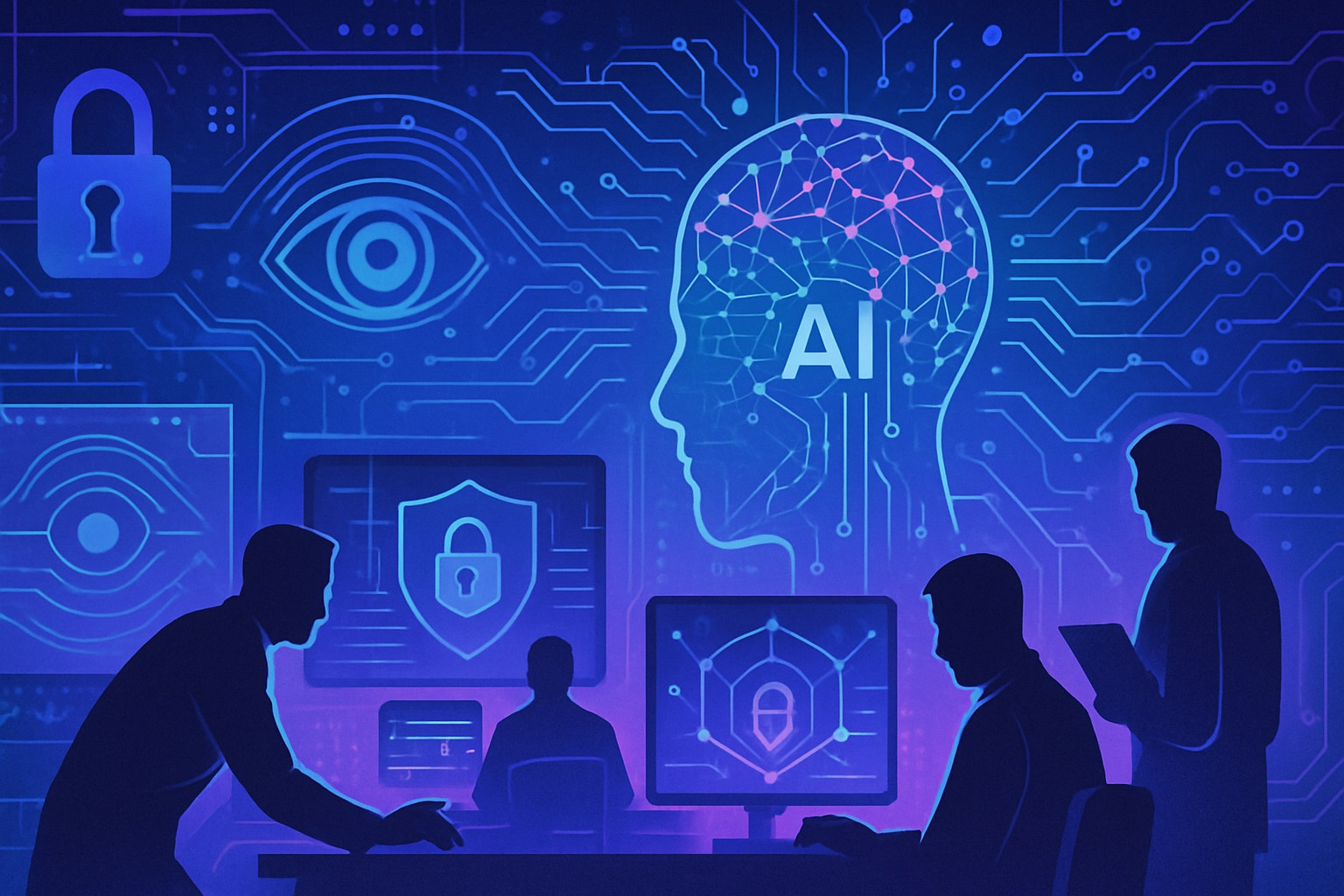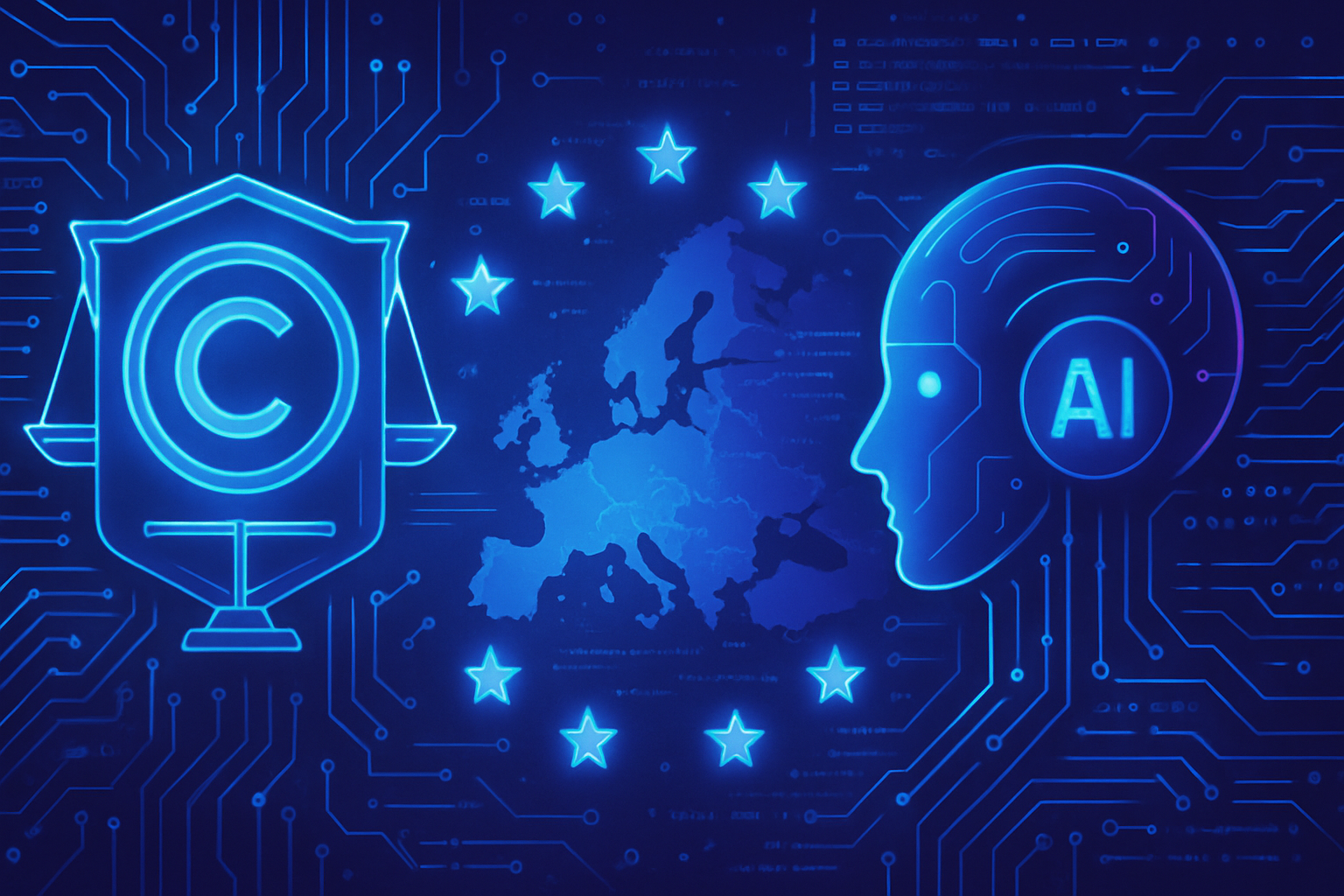The emergence of AI, represented by giants like DeepSeek, is transforming the digital landscape, but it raises major concerns. Security officials perceive this technology as an increasing threat to the integrity of their systems. Ethical and security issues are crystallizing around data management, highlighting the urgent need for government regulation. Faced with an increasingly sophisticated threat landscape, tensions rise and call for collective reflection on the policies to adopt. Peaceful coexistence with AI requires a singular focus on the security implications it entails.
Disruptions in the digital landscape
Concerns are growing among information security directors, particularly in light of the emergence of DeepSeek, an artificial intelligence (AI) platform developed by a Chinese giant. This technology, which promises efficiency gains for businesses, raises reticence among those tasked with defending critical infrastructures. The impact of this innovation on cybersecurity is becoming a major concern.
Calls for government regulation
A recent survey reveals that 81% of British CISOs believe that AI chatbots require immediate regulation from the government. Security officials fear that, in the absence of quick interventions, DeepSeek could become a catalyst for large-scale cybersecurity crises. This perception is not speculative but rather reflects a reality of data management practices and the potential risks involved.
Reactions from security officials
In response to these challenges, 34% of CISOs have decided to completely ban AI tools due to the threats they pose to their security. A significant proportion, nearly 30% of officials, have already halted specific AI deployments within their organizations. This withdrawal reflects a pragmatic reaction to an increasingly hostile cyber environment.
Growing threats posed by AI
Platforms like DeepSeek pose notable dangers, exposing sensitive data to cybercriminals. Thus, 60% of CISOs warn of a direct increase in cyberattacks due to the proliferation of this technology. This reality is prompting many officials to reconsider how they integrate AI into their security systems.
Real inability to manage threats
An alarming observation emerges: nearly 46% of security leaders admit they are unprepared to handle the unique threats posed by AI-based attacks. They note that advancements in tools like DeepSeek are outpacing their real-time defense capabilities. This gap creates a potentially catastrophic vulnerability for businesses.
Strategic investments in AI
Despite restrictive measures, companies are not completely giving up on AI. They are adopting a strategic approach, seeking to integrate this technology while guarding against risks. 84% of British organizations consider hiring AI specialists a priority for the coming years, indicating a clear commitment to responsible adoption.
Partnership with public authorities
Security leaders in the UK do not aim to stifle AI innovation, but rather wish to guide its development. The need for a stronger partnership with the government is becoming evident. They advocate for the establishment of clear rules regarding the deployment and oversight of AI technologies, especially in the face of emerging threats like DeepSeek.
Urgency for adequate regulation
CISOs emphasize the absolute necessity of defining a national regulatory framework, ensuring that this technology remains a vector for progress and not for crisis. Calls for effective regulation are multiplying, aligned with the growing needs for data protection across all sectors. They wish to see a structure that guarantees safe use of AI.
Ongoing initiatives
Security officials are also monitoring developments within the European Union, which is working to establish robust AI regulation capable of addressing these challenges. Regulatory initiatives, like those discussed during the recent Bletchley Park summit, aim to establish balanced standards for the future of artificial intelligence.
Examples of regulation in other regions
Globally, countries like the United States are tightening their restrictions, for example, by limiting access to certain AI tools by foreign actors. Furthermore, a strengthening of restrictions could also help protect the integrity of information systems by preventing potentially dangerous technologies from being used to compromise national security.
Reflections on innovative AI tools
Advancements such as the recent presentation of Genie 3 by Google illustrate the fascinating evolution of AI. These innovations open up perspectives while raising questions about their ethical and security frameworks. The concerns of cybersecurity leaders remind us that the exploration of new technological horizons must be accompanied by heightened vigilance.
The discussions held during recent conferences, such as the meeting on AI regulation, highlight the need to find a balance between innovation and caution. A balanced approach must be adopted to ensure a digital future capable of developing without compromising data security.
In the face of a constantly evolving technological environment, companies are viewing the issues surrounding artificial intelligence with increased seriousness. A harmonious orchestration between innovation and regulation is essential to avoid catastrophic deviations and ensure a safe future for all.
FAQ on the urgent call for AI regulation like DeepSeek
Why do security officials fear a national crisis related to DeepSeek?
Security officials believe that DeepSeek, with its data management practices and potential for misuse, could become a triggering factor for large-scale cyberattacks, thus threatening the sensitive data of businesses and national security.
What are the main risks associated with the use of AI like DeepSeek?
The risks include the exposure of sensitive corporate data, the hijacking of technology by cybercriminals, and a negative impact on governance frameworks and privacy protection.
What is the view of CISOs on government regulation regarding AI?
A majority of CISOs are calling for urgent regulation of AI to establish clear guidelines on its deployment, governance, and oversight to prevent potential threats and enhance security.
How are companies reacting to the emergence of AI tools like DeepSeek?
Companies are adopting a cautious approach by banning certain AI tools while investing in training and recruiting AI specialists to safely navigate this complex technological landscape.
What preparedness measures are necessary to face AI-driven attacks?
It is crucial to strengthen existing cybersecurity frameworks, train teams to manage specific AI-related threats, and collaborate with the government to establish consistent security standards.
Why do some companies choose to ban the use of AI tools?
Concerns regarding cybersecurity and the potential for manipulation by these tools lead some companies to prohibit their use in order to protect their data and infrastructures.
What impact could Asian guests, such as those from DeepSeek, have on UK businesses?
Asian tools, such as DeepSeek, are seen as potential sources of vulnerabilities for UK businesses, fueling concerns about their ability to withstand heightened cyber threats.






